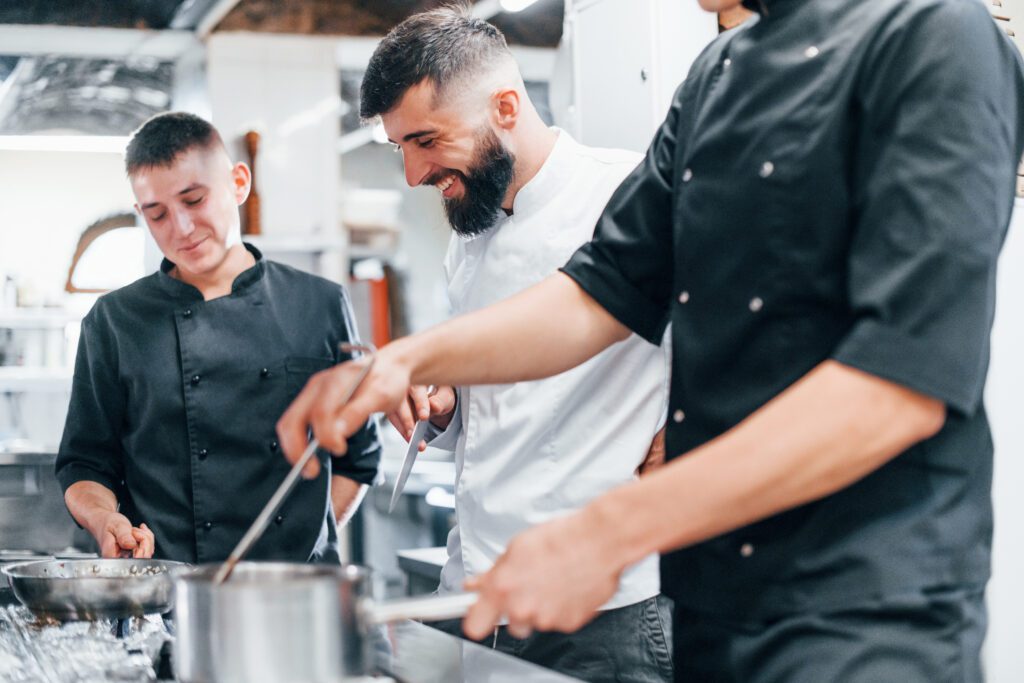The Operator’s Guide to Growing and Retaining Talent from Within

Your next great sous chef, general manager, or team lead might already be on staff. Here’s how top restaurant operators grow leaders from the inside out.
Turnover happens, but that doesn’t mean your best people are always walking out the door. The truth is, some of your most promising future leaders are already on staff. Maybe they’re a steady hand on the prep line. Maybe they’re the barback who helps everyone close faster. Maybe they’re the new host already organizing the floor like a pro.
At MAJC, we’ve talked to dozens of chefs, owners, and operators who agree: talent isn’t just found. It’s built. Here’s how they’ve developed team members from within, turning potential into performance.
1. Look for Signs of Readiness, Not Just Tenure
Future leaders don’t always raise their hands. Sometimes they quietly hold the team together behind the scenes. Operators like chef Adam Sobel look for quiet consistency, not just loud confidence. The best future leaders aren’t always the first to speak up. They’re the first to step in.
They ask:
- Who keeps things calm during a rush?
- Who helps others without being asked?
- Who asks why, not just how?
These are the people worth investing in. Skill can be taught. Mindset and attitude are harder to coach.
2. Create a Clear Path for Growth
If your team can’t see a future with you, they’ll find one somewhere else. Culinary and test kitchen director Belle English and chef James Galbraith have built development systems that outline what it takes to move up, whether it’s mastering a station, mentoring new hires, or taking on a leadership task. At Williams Sonoma, English implemented role clarity across her test kitchen so people knew exactly what growth looked like and where they stood.
Even a simple one-pager can go a long way:
- Outline levels or roles with expectations
- Share timelines for advancement
- Schedule quarterly check-ins focused on development, not just performance
Career pathing doesn’t have to be fancy. It just has to be visible and real.
3. Cross-Train with Purpose
Cross-training isn’t just a backup plan. It’s a development strategy. In chef Eli Sussman’s kitchen, a dishwasher who took initiative on cold prep eventually moved to the line. That kind of growth happens when leaders create space for team members to try, learn, and prove themselves beyond their current role.
Successful operators:
- Document skills and progress
- Rotate team members into new roles with guidance
- Celebrate versatility as a form of leadership
Cross-training builds resilience, deepens team empathy, and creates more promotable employees.
4. Develop Leadership Skills Before the Promotion
Too often, leadership starts with a title instead of a foundation. For chef Chris Shepherd, one of the simplest ways to build leadership is to give team members real responsibility like running pre-shift, managing a task list, or taking ownership of part of the ordering process and then back them up.
When people get reps in low-stakes leadership, they’re more confident and more effective when the bigger role arrives.
5. Make Mentorship Part of the Culture
Almost every chef we’ve interviewed credits a mentor with helping them get where they are. Chef Yia Vang often reflects on how someone believed in him early and how that shaped his approach to leadership. That kind of lineage creates ripple effects. Mentorship gives your team a sense of belonging and possibility. It shows that their growth matters.
To build a mentorship mindset:
- Pair new hires with seasoned team members
- Give shift leads time and space to coach
- Normalize sharing stories, not just corrections
You don’t need a formal program. You need a culture that values teaching.
6. Support Growth Without Rushing It
Development should be energizing, not overwhelming. Chef Tyler Florence emphasizes that leadership isn’t just about giving someone more to do. It’s about giving them the time, space, and structure to grow into the next phase without burning out on the way there.
That means:
- Avoid “dump and promote” burnout
- Build time into the schedule for learning
- Talk to team members about their definition of success, not just yours
Sometimes, the best way to support someone’s growth is by setting the right pace.
7. Track and Celebrate Progress
What gets tracked gets supported. But many operators don’t measure internal development with the same rigor as sales or labor. Zach Field reminded us that growth needs structure. He tracks team milestones and holds regular career conversations with clients. If you want to grow people, you need a system that makes it visible.
Try:
- Tracking cross-training completions
- Monitoring time-in-role versus promotions
- Reviewing internal promotion rates every quarter
Don’t forget to celebrate the wins, whether it’s someone learning a new station, mentoring for the first time, or hitting a six-month milestone. Public recognition builds momentum and motivation.
Bottom Line: Your Best People Might Already Be With You
You don’t have to keep starting from scratch. Even in high-turnover environments, your future leaders might already be on staff.
They don’t need a ladder. They need belief, support, and a system that helps them grow. Operators who invest in internal development see stronger teams, longer retention, and a culture that others want to join.
The question isn’t just who you’ll hire next. It’s who you’ll help become great.
We help restaurant leaders build teams that grow stronger over time. From real-world leadership strategies to systems that support development and retention, it’s all here. Start building your future team at MAJC.
At MAJC, AI helps us organize thoughts and speed up workflows, but every article is shaped, refined, and approved by real people who live and breathe this industry. We think honesty (like hospitality) works best when it’s real.


